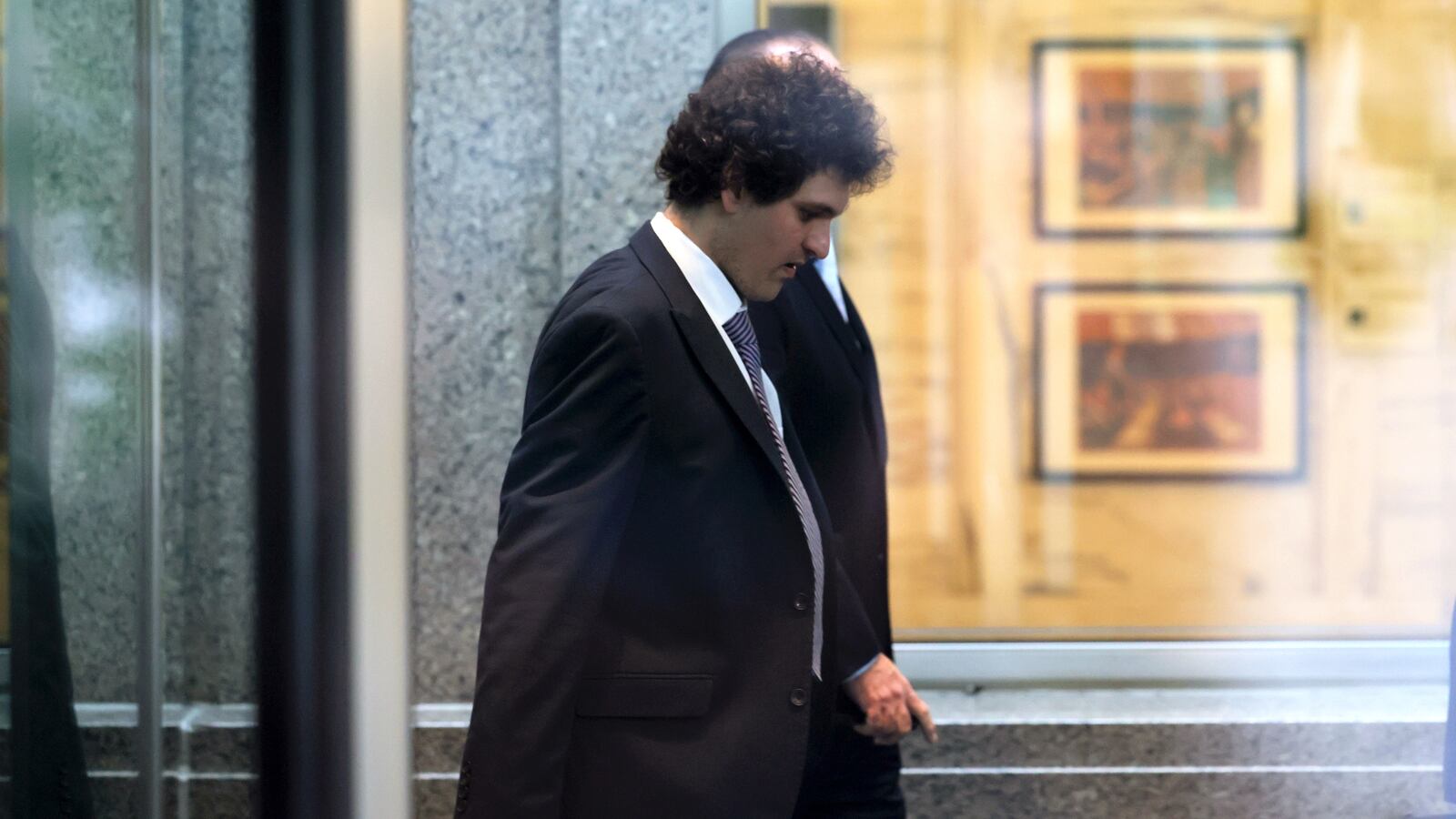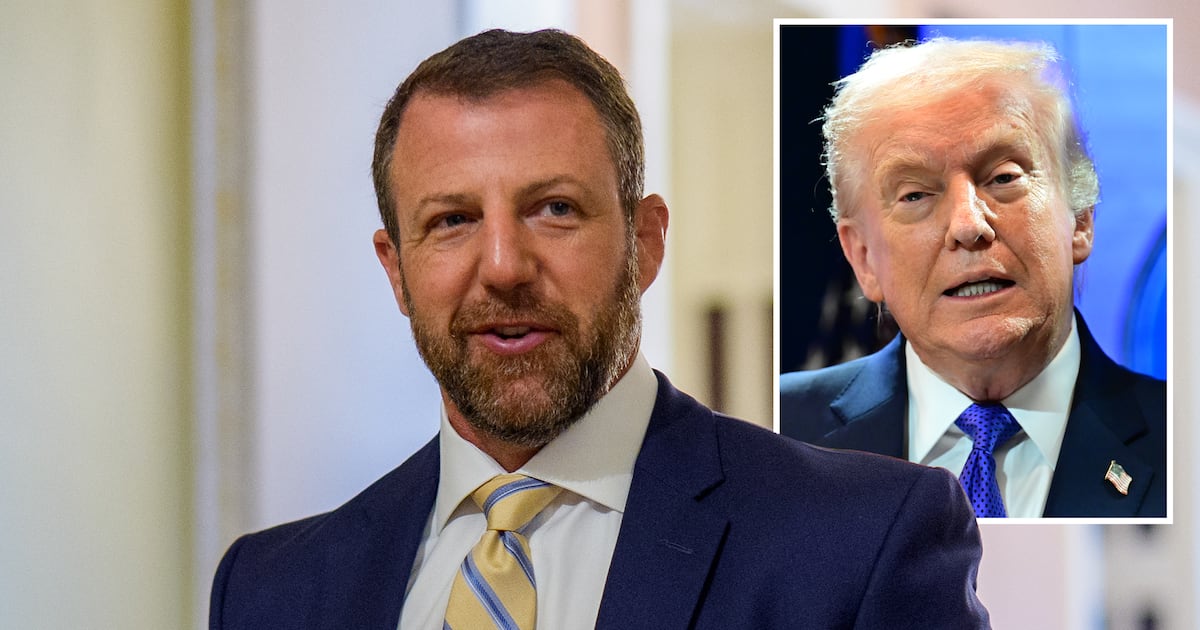Sam Bankman-Fried’s parents may have slumped over and held their heads in their hands as the court read out a guilty verdict for their son, but the mood outside the courthouse was one of relief and vindication.
Aditya Baradwaj, a former software engineer for Bankman-Fried’s hedge fund, Alameda research, told The Daily Beast that he and other former employees had been following the trial daily and that the result “restores my faith in the legal and judicial system.”
“The reaction from all of us is it’s great to see justice is served, and it’s something we’ve been waiting for a long time,” he said. “It’s basically been a whole year of watching and waiting and hoping Sam won't be able to pull the wool over the jury’s eyes.”
A jury found Bankman-Fried, 31, guilty of seven counts including wire fraud, securities fraud, and money laundering connected to the fall of his cryptocurrency exchange, FTX. Prosecutors alleged that Bankman-Fried transferred approximately $8 billion in FTX customer funds to Alameda, then used it to buy luxury properties and make risky investments, among other things.
Bankman-Fried, who testified for hours in his own defense, claimed he did not know the customer money was being spent, and that he “deeply regret[ted] not taking a deeper look into it.” He now faces more than 100 years in prison at his sentencing in March, though his attorney said he maintains his innocence and will “continue to vigorously fight the charges against him.”
A number of Bankman-Fried’s former peers celebrated the verdict, with Elon Musk tweeting: “There is great wisdom in the jury system.” But Jason Calacanis, angel investor and host of the “All In” podcast, was less upbeat. “SBF's crimes were more significant than 10,000 low-level criminals combined, but he will get similar sentences I bet,” he tweeted. “He'll get 30 years & serve 15.”
Sequoia Capital, the prominent hedge fund that invested $225 million in FTX, made its first comment on the situation since the exchange crashed last November. Partner Alfred Lin tweeted that the company conducted an internal review and concluded they had been “deliberately misled and lied to.”
“Today’s swift and unanimous verdict confirms what we already knew: that SBF misled and deceived so many, from customers and employees to business partners and investors, including myself and Sequoia,” Lin tweeted. (The tweet did not go over well with viewers: “Just admit it, you did zero due diligence,” was one of the most-liked responses.)
One of the only industry figures to express sympathy for the fallen crypto king was Martin Shkreli, the notorious “pharma bro” who served almost seven years in prison on similar charges.
“I feel bad for him, there is no victory for anyone here,” Shkreli tweeted, in response to a tweet suggesting he was taking a “victory lap” at the verdict. He followed this with a rambling post about how Bankman-Fried should behave in jail—satirical advice that included fabricating a friendship with NBA Youngboy and learning the lyrics to rap songs.
Baradwaj, the former Alameda employee, said he, too, would not celebrate if the judge threw the book at his former boss.
“I’m not someone who’s rooting for him to rot in jail his whole life,” Baradwaj said. “The guilty verdict was a vindication of the experience that all of us went through, so that's what I care about more.”
Baradwaj also said he was underwhelmed by Bankman-Fried’s defense counsel and his own testimony. Baradwaj recognized his former boss’s proclivity for speaking at length and using “big words”—something he thought the MIT grad might be doing intentionally to confuse the jury.
“It's clear that Sam was trying really hard to tip-toe around saying the truth of what he did, and he was trying to disguise it using other words and more complex language,” Baradwaj said.
Other former Alameda and FTX employees were crucial witnesses at the trial. Three of Bankman-Fried’s top lieutenants—Gary Wang, Nishad Signh, and Caroline Ellison—claimed he directed them to commit crimes, in testimony legal experts said was crucial to the prosecution’s case. The three have also pleaded guilty to various counts of conspiracy and fraud.
For Baradwaj, the trio’s testimony provided a sense of closure. After a year of wondering what really happened behind the scenes of the company’s crash, he finally got some answers. While it didn’t absolve them of their role in the fraud, he said, “I’m glad that I got to see their point of view, because I think it fills in the rest of the cracks in the full picture.”






